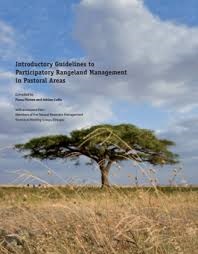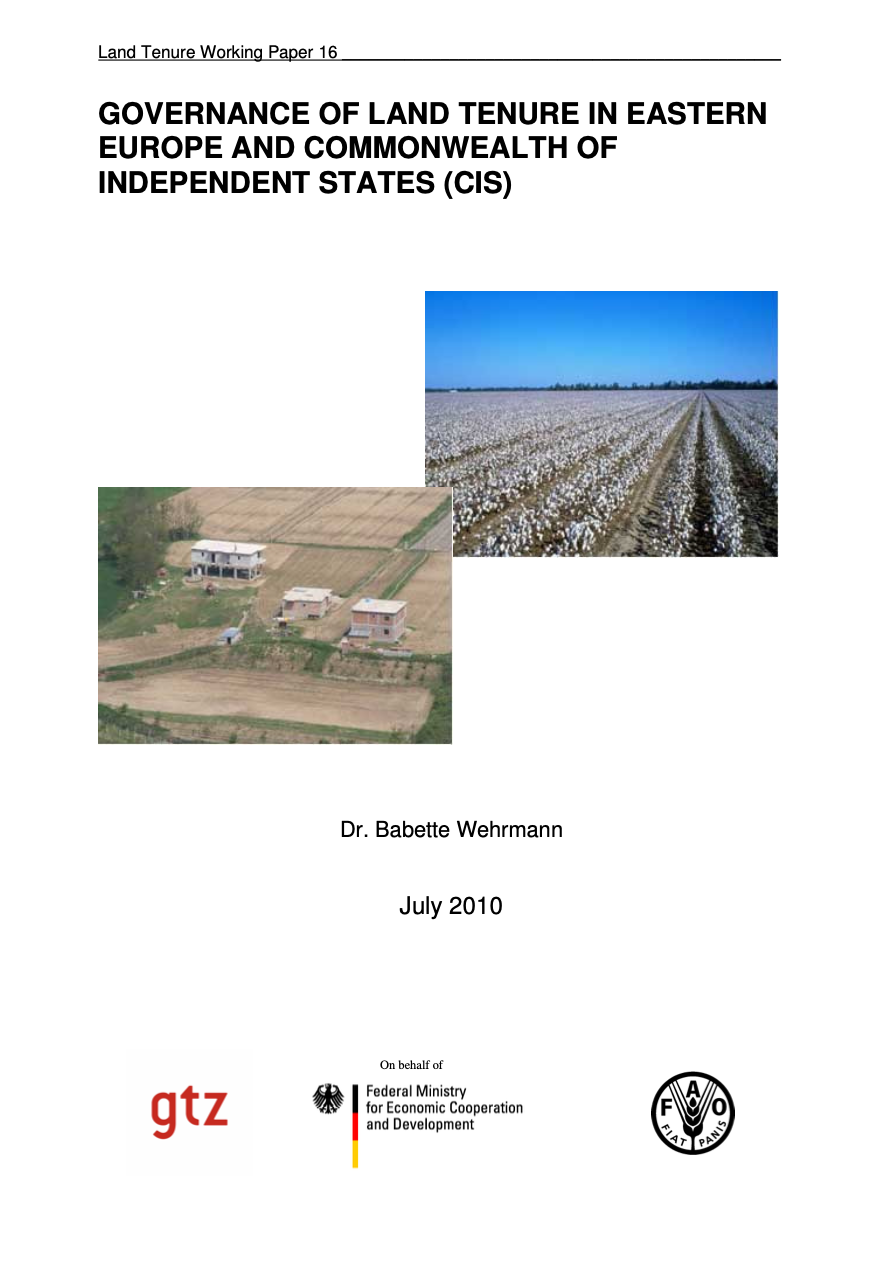Focal point
Location
The Food and Agriculture Organization of the United Nations leads international efforts to defeat hunger. Serving both developed and developing countries, FAO acts as a neutral forum where all nations meet as equals to negotiate agreements and debate policy. FAO is also a source of knowledge and information. We help developing countries and countries in transition modernize and improve agriculture, forestry and fisheries practices and ensure good nutrition for all. Since our founding in 1945, we have focused special attention on developing rural areas, home to 70 percent of the world's poor and hungry people.
Members:
Resources
Displaying 2836 - 2840 of 5074Statutory recognition of customary land rights in Africa
Recognizing and protecting customary land rights is a critical component of protecting and defending the land rights of the rural poor. This study is founded upon the notion that protecting and enforcing the land claims of rural Africans may be best done by passing laws that elevate existing customary land claims up into nations' formal legal frameworks and make customary land rights equal in weight and validity to documented land claims.
Introductory Guidelines to Participatory Rangeland Management in Pastoral Areas
These guidelines introduce and promote the essential elements of participatory rangeland management (PRM). Based upon the successful experiences of participatory forest management, the guidelines provide a process following three stages of investigation, negotiation and implementation. The sequential steps of this process lead to the development of a rangeland management plan and a legally binding rangeland management agreement between a local rangeland management institution and the appropriate local government office.
Governance of Land Tenure in Eastern Europe and Commonwealth of Independent States (CIS)
The present study – looking at the land governance situation in Eastern Europe and the Commonwealth of Independent States (CIS) – has been prepared to provide a base for discussion for the regional consultation meetings on the FAO Voluntary Guidelines on Responsible Governance of Tenure of Land and other Natural Resources.
Land reform: Land settlement and cooperatives
Almost all societies acknowledge the concept of state or public landownership in which property rights are vested in a public body on a national, regional or community level. State and public land tenure arrangements define rules for the distribution, use and protection of publicly vested lands. State lands may be used to deliver public services. Authorities or customary rulers may act as custodians of common property resources or of environmentally or culturally sensitive sites on behalf of society. Many forms of public tenure arrangements have been introduced.
Cadre et lignes directrices sur les politiques foncières en Afrique : politiques foncières en Afrique:un cadre pour le renforcement des droits fonciers, l'amélioration de la productivité et des conditions d'existence
En 2006, la Commission de l’Union africaine, le CEA et la BAD ont enclenché un processus d’élaboration d’un cadre général et lignes directrices sur les politiques foncières et les réformes foncières en Afrique avec pour objectif de sécuriser les droits fonciers, d’améliorer la productivité et les conditions de vie de la majorité de la population du continent.










